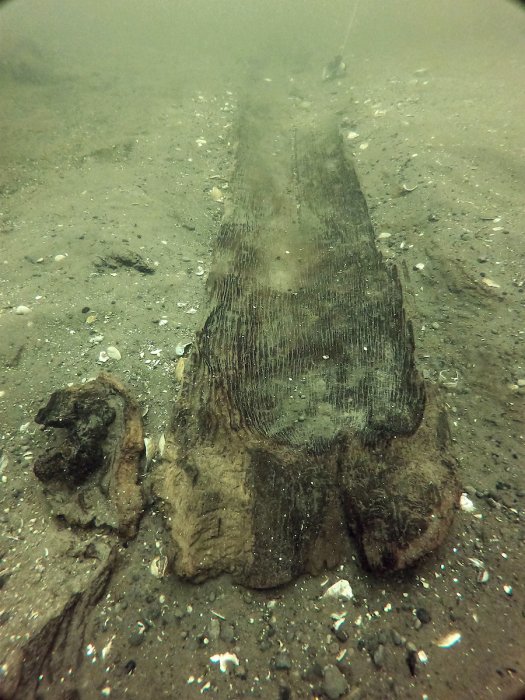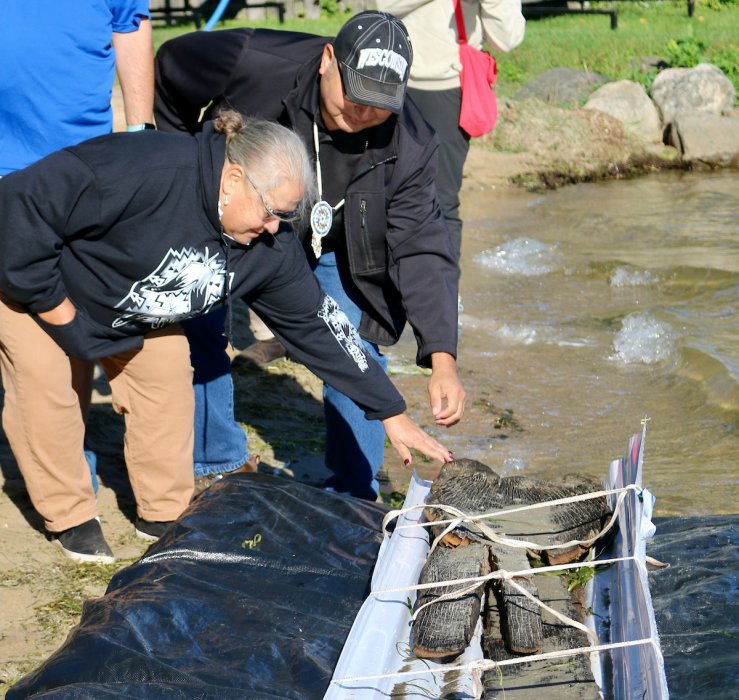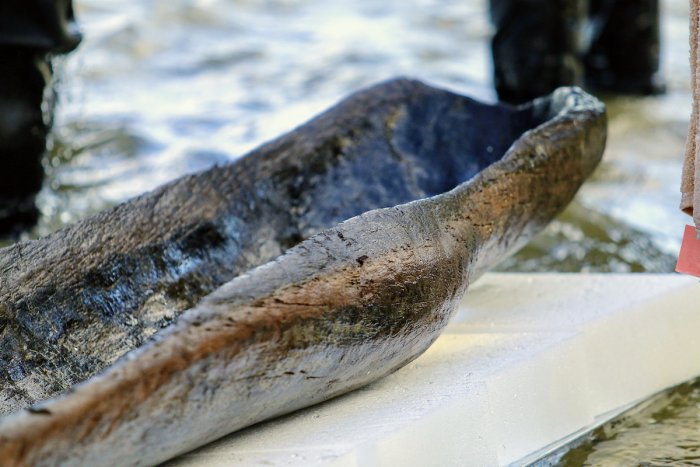Jan Bartek – AncientPages.com – Archaeologists from the Wisconsin Historical Society have discovered that the depths of Madison’s Lake Mendota in Wisconsin harbor a remarkable find – as many as 11 ancient canoes.
This significant discovery made by the Wisconsin Historical Society, in partnership with Native Nations in Wisconsin, suggests the presence of a lost village in the area long ago. The first canoe was unearthed in 2021, followed by another in 2022. Remarkably, these canoes are between 1,200 and 4,500 years old. This extraordinary find has inspired archaeologists to continue their search, driven by the potential for further revelations about the region’s rich history.
“It is an honor for our team to work alongside the Native Nations to document, research, and share these incredible stories from history,” said Dr. Amy Rosebrough, State Archaeologist for the Wisconsin Historical Society.
“What we thought at first was an isolated discovery in Lake Mendota has evolved into a significant archaeological site with much to tell us about the people who lived and thrived in this area over thousands of years and also provides new evidence for major environmental shifts over time.”
the region’s rich maritime history. Maritime archaeologist Tamara Thomsen, a member of the Women Diver’s Hall of Fame, initially stumbled upon a partially obscured dugout canoe in June 2021 while exploring the lake’s depths. This chance encounter paved the way for groundbreaking recovery efforts in November 2021 and September 2022.
Subsequent diving expeditions revealed the presence of additional dugout canoes, prompting archaeologists from the Wisconsin Historical Society to consult with Tribal partners, analyze findings, and document the potentially vulnerable site before publicly releasing details.
Today, researchers have identified at least ten unique canoes, with the possibility of up to eleven canoes pending further analysis of wood fragments. This grouping includes the two previously recovered canoes. Archaeologists hypothesize that these canoes may have been intentionally cached in the water to prevent freezing and warping during the winter, only to be buried over time by natural forces.
The Lake Mendota canoes are concentrated along roughly 800 feet of what was likely an ancient shoreline that became submerged due to environmental shifts in the region. Thomsen recovered small physical samples from each canoe for carbon dating, wood type analysis, and further research, enabling a deeper understanding of this remarkable archaeological find.
Radiocarbon dating has revealed significant insights into the ancient canoe cache discovered in Lake Mendota. The oldest canoe, crafted from Elmwood, dates back approximately 4,500 years to around 2500 BC, making it the oldest dugout canoe recorded in the Great Lakes region. Four canoes originate from the Late Archaic period, while two belong to the Middle Woodland period, and up to four canoes date back to the Late Woodland period.
A Ho-Chunk tribal member touches the canoe, accompanied by Tribal Historic Preservation Officer Bill Quackenbush. Wisconsin Historical Society maritime archaeologists recovered a 3,000-year-old dugout canoe from Lake Mendota in Madison, Wisconsin. Photo by Dean Witter – Wisconsin Historical Society
The most recent canoe, constructed from Red Oak, is around 800 years old, dating back to around 1250 AD during the Oneota period. These findings provide valuable information about the region’s long-standing tradition of canoe-building and watercraft usage over several millennia.
The Society has decided not to recover any additional canoes from the site due to their fragile condition. After being exposed to natural elements for an extended period and later to manmade conditions like water pollution and boating wakes, the canoes have deteriorated significantly.
This decision was made in collaboration with Tribal Historic Preservation Officers after archaeologists determined that the remaining canoes are not physically intact enough to withstand the recovery process by divers and subsequent preservation efforts. Instead, maritime archaeologists from the Wisconsin Historical Society extensively document the site and the submerged canoes in Lake Mendota. This documentation includes recording underwater videos and capturing photographs of the canoes in their current location.
1,200 year old canoe getting recovered from Lake Mendota. Credit: WHS
“Seeing these canoes with one’s own eyes is a powerful experience, and they serve as a physical representation of what we know from extensive oral traditions that Native scholars have passed down over generations,” said Tribal Historic Preservation Officer for the Ho-Chunk Nation Bill Quackenbush, who focuses on heritage preservation and also specializes in using ground penetrating radar (GPR) technology to research ancestral sites.
See also: More Archaeology News
“We are excited to learn all we can from this site using the technology and tools available to us, and to continue to share the enduring stories and ingenuity of our ancestors.”
“We have a lot to learn from the Mendota canoe site, and the research happening today allows us to better understand and share the stories of the people who lived here and had a thriving culture here since time immemorial,” Lake Superior Chippewa Tribal Historic Preservation Officer Larry Plucinski said.
Written by Jan Bartek – AncientPages.com Staff Writer




